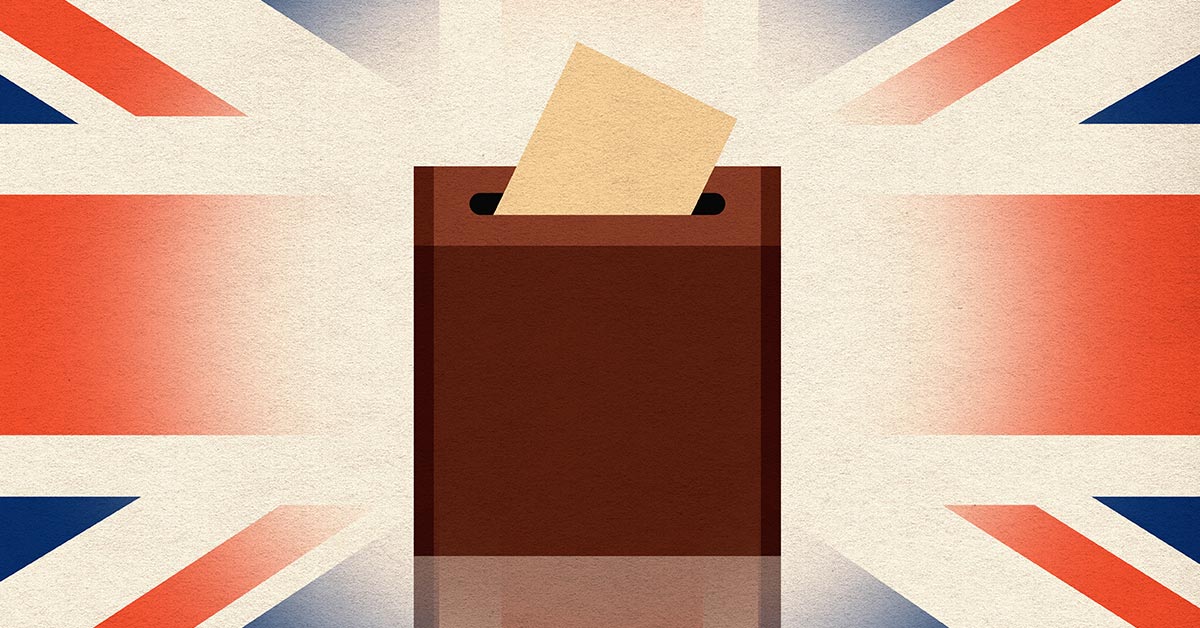Sometimes polls are right and sometimes polls are wrong. Last week, we saw classic examples of both.

Review of the week: Labour waltzes to victory
Article last updated 8 July 2024.
QUICK TAKE:
Labour wins a 173-seat majority as Conservatives’ share of MPs plummets
The new government’s vote-share is lowest in more than a century
The right-wing Rassemblement National slumped to third in the second round of the French election
Ahead of Thursday’s UK election, pollsters unanimously predicted a Labour landslide. And so it was. Labour secured 412 seats, giving them a majority of 173. But the old adage that ‘oppositions don’t win elections, governments lose them’ once again showed its truthfulness. The Conservatives lost between 244 and 251 seats, depending on how you account for recently changed constituencies. The Scottish National Party was broadly washed away and the Liberal Democrats jumped from 11 to 72, not far behind the Conservative’s 121.
Interestingly, while the opinion polls correctly forecast a Labour landslide, the winners’ vote-share was just 34% – the lowest for a winning party since the Great War. Keir Starmer’s Labour took 3 million fewer votes than his predecessor, Jeremy Corbyn did back in 2019. Nigel Farage’s Reform Party attracted 14% of the vote, but secured only five seats. First Past the Post is a cruel system – or, perhaps, it rewards electoral efficiency more than national popularity. A government toting such a huge majority, won with a small proportion of the popular vote, and on very low turnout does create a strange paradox.
UK markets are unfazed. The result had been incorporated into prices long before the result was confirmed. Attention will turn to the official opening of Parliament and the King’s Speech on 17 July, when the new government’s legislative programme will be unveiled. As we’ve pointed out before, the finances are tight and growth is scarce, so Labour will have to move cautiously to avoid spooking bond markets or harming public services.
It will be a tough road for the new government, given taxes are high relative to the UK’s history (yet low relative to other major advanced nations), the nation’s debt is as large as the economy and interest rates are higher than they’ve been since the Global Financial Crisis. Labour’s plans to improve low-wage labour conditions – which are hard to assess today because of their manifesto’s scant detail – present some risks to corporate profitability. Yet investors should be hopeful about the future if the government follows through on its plan to be more investment-focused. There are helpful trends as well. UK inflation has fallen back to its 2% target. While services prices are still a concern, the trajectory of most economic data suggests this will ease as well. The Bank of England is widely expected to cut interest rates soon – perhaps as early as next month. Falling rates would ease some of the pressure on borrowers, both households and the government.
New ideas are welcome. The government appears focused on spurring economic growth, with aims to boost investment and reform the country’s byzantine planning laws. If successful, improvements here should mean more efficient public services, more profitable businesses, higher living standards and the ability to reduce both debt and the tax burden. But it remains an ‘if’ at this stage.
Shock French result creates hung parliament
Across the Channel, it’s a completely different story.
After a first-round landslide for the right-wing Rassemblement National (RN), opinion polls forecast another strong showing in Sunday’s final round of parliamentary elections. The strong chance of an RN majority came to naught, with the party winning the third-largest number of seats behind the left-wing alliance Nouveau Front Populaire (NFP) and French President Emmanuel Macron’s Ensemble centrist coalition.
The political situation is rocky, to put it mildly. Once the dust settled, the incumbent Ensemble had lost 76 seats, leaving them with 161. The NFP had gained 57, giving them a plurality of 188. RN gained 53 seats, taking them to 142, while their allies Les Republicains lost 13, securing 48.
The French custom of virtually all other parties agreeing to drop out of races that they can’t win to prevent splitting the vote and therefore besting right-wing candidates is still very powerful. Yet, despite significantly undershooting expectations, the RN is still a much larger force in the parliament. And the left-wing alliance has gained ground too. The centre has shrunk. Public debt is very high, government spending is unsustainable, and its growth is flatlining. Greater support for the extremes increases the chance that poison is used as cure.
For now, France is in stasis. Ensemble Prime Minister Gabriel Attal has offered his resignation, in line with French custom when a government loses control of the chamber, but Macron has yet to accept or reject it. Attal has said he would remain in office as a caretaker leader while a new government is engineered. There are many avenues that Macron may take to install the next government. Coalition negotiations between the parties are on the horizon. If no agreements can be made, a technocratic government could be formed to run the apparatus of state in the meantime.
Investors seem to view this potential gridlock as a reasonable outcome. The threat of extreme policies from right and left appears to have been neutered because neither has secured anywhere near a majority. The French stock market opened slightly lower on Monday, but soon rallied. Meanwhile, French government bonds, after a small initial sell-off, have returned to where they were on Friday.
If you have any questions or comments, or if there’s anything you would like to see covered here, please get in touch by emailing review@rathbones.com. We’d love to hear from you.




